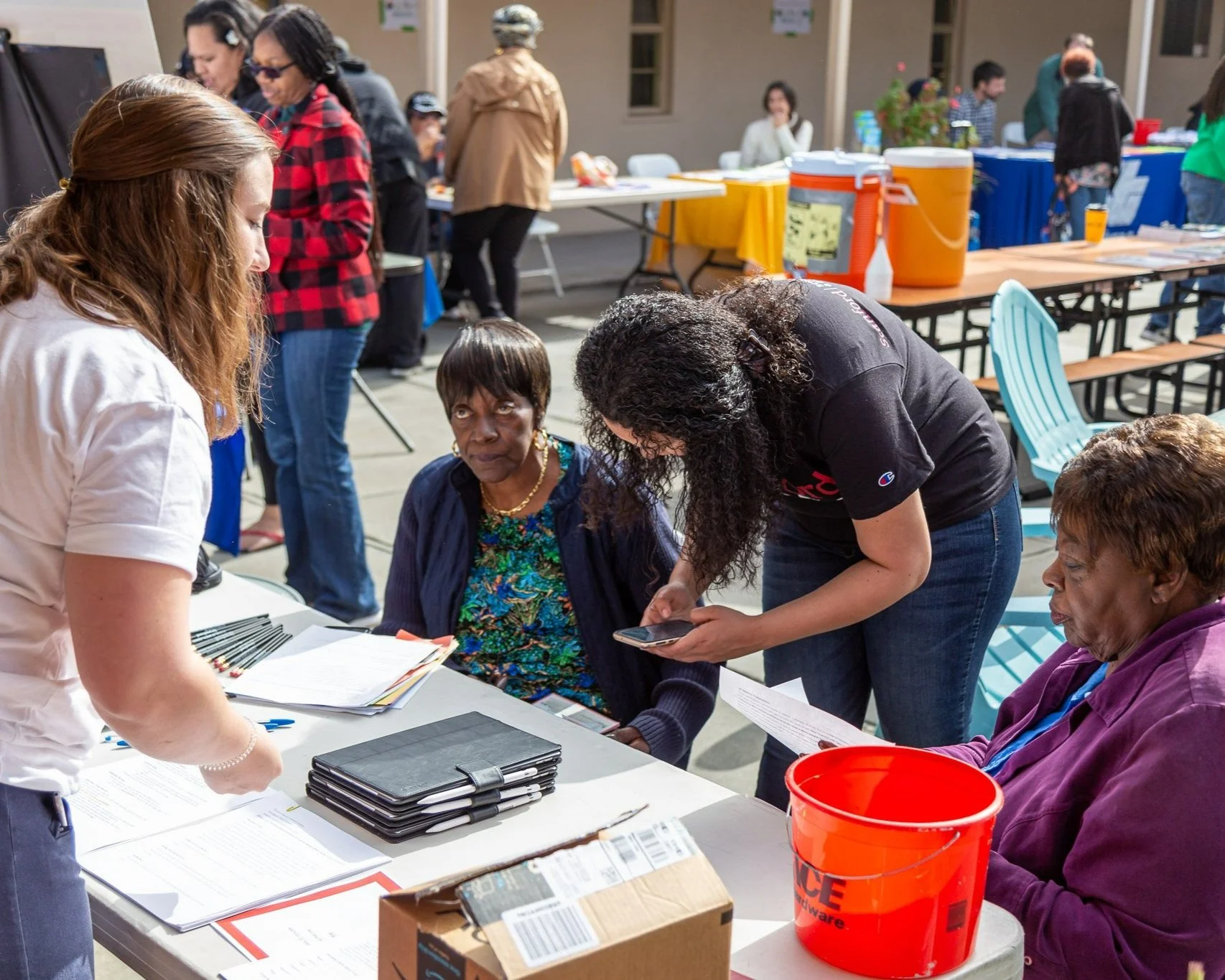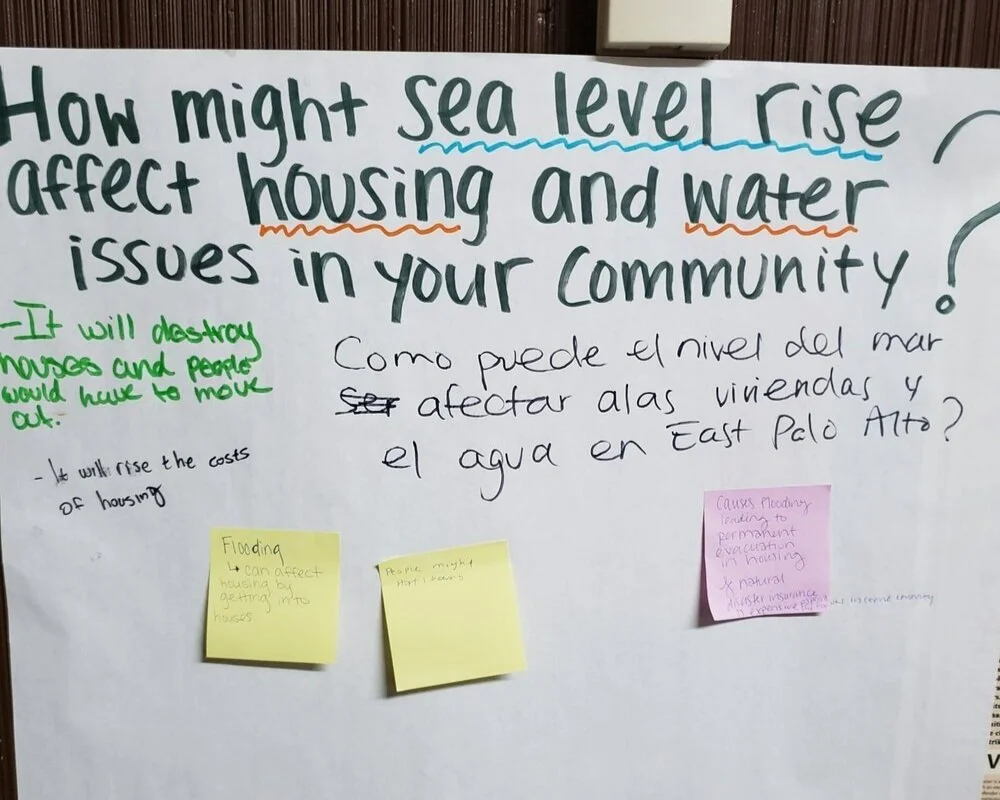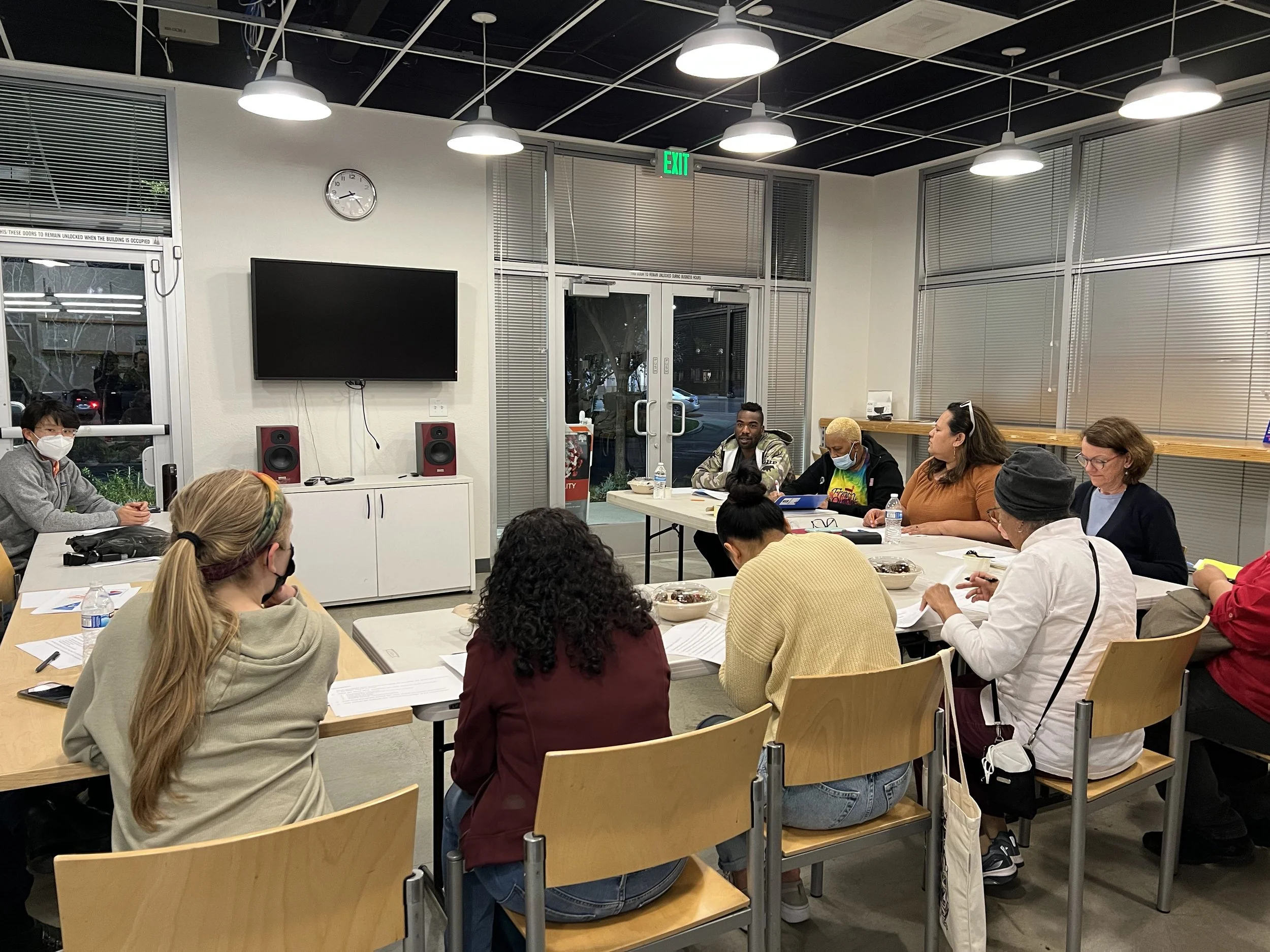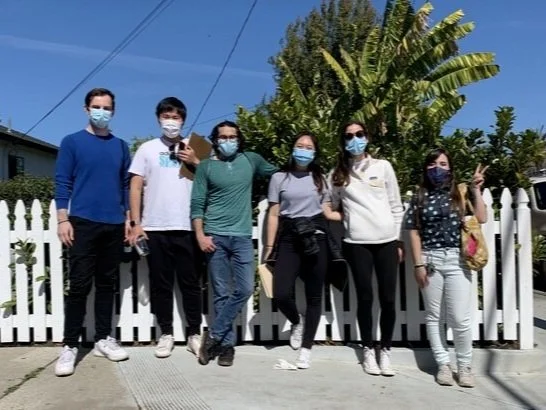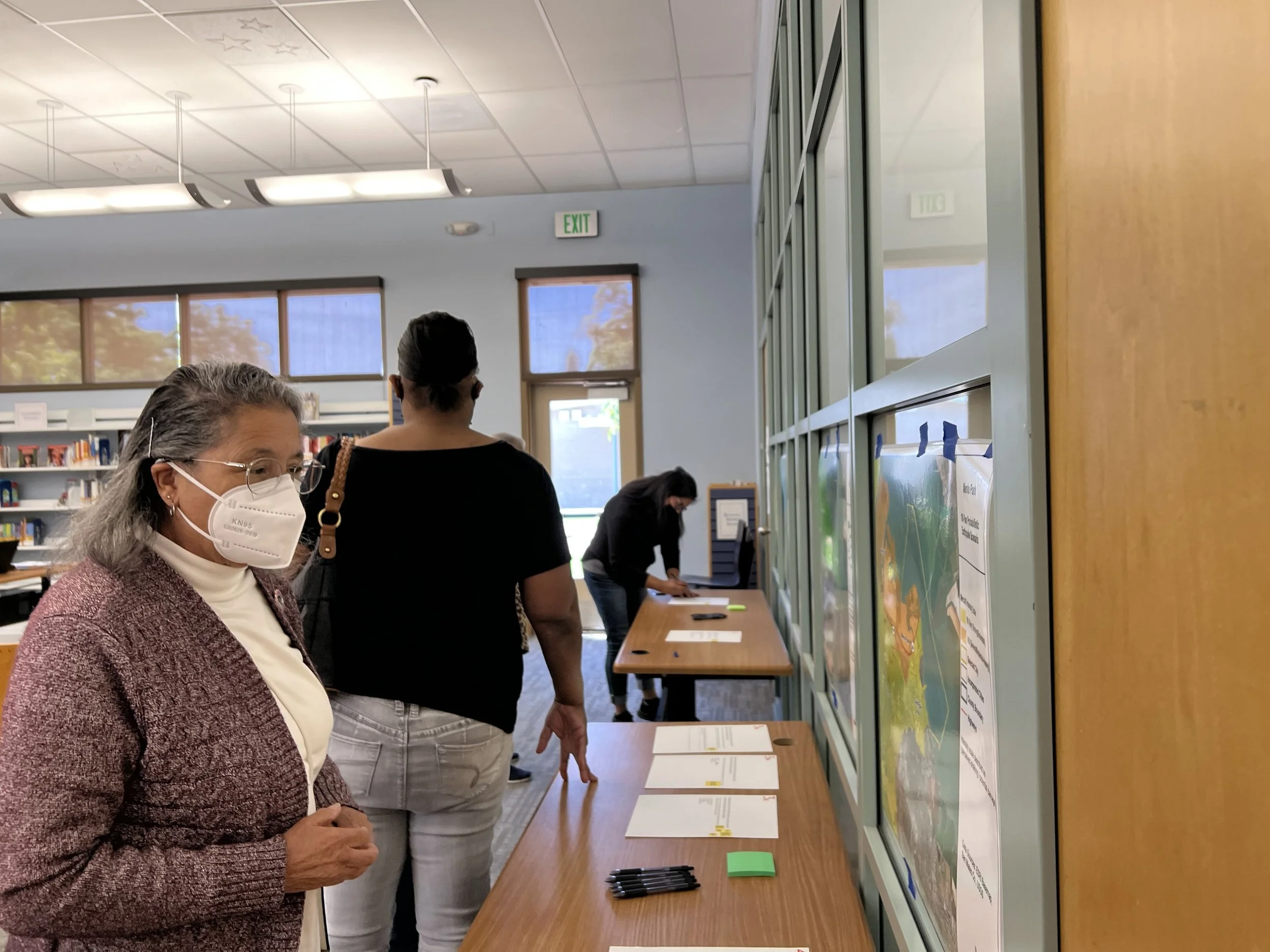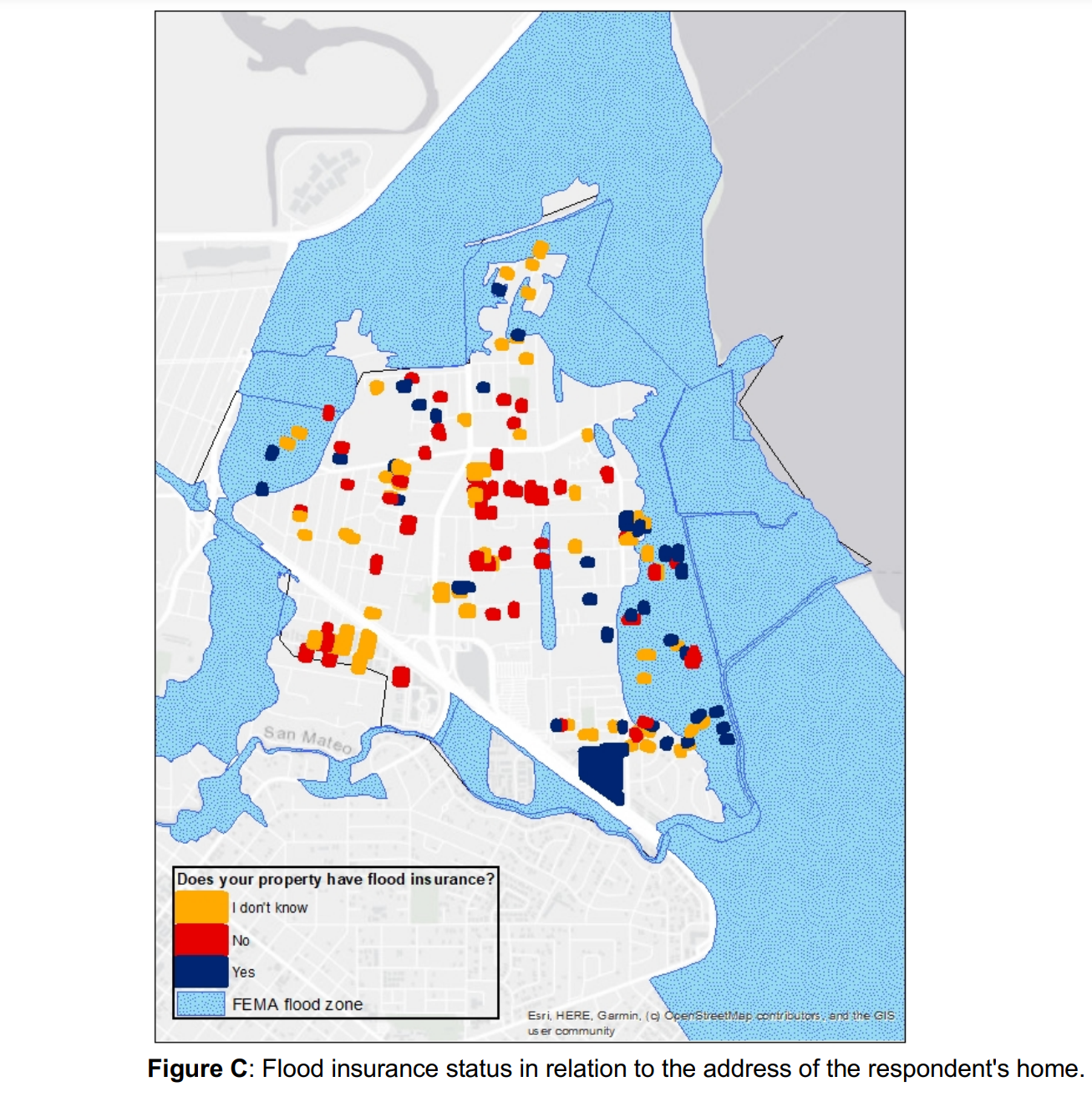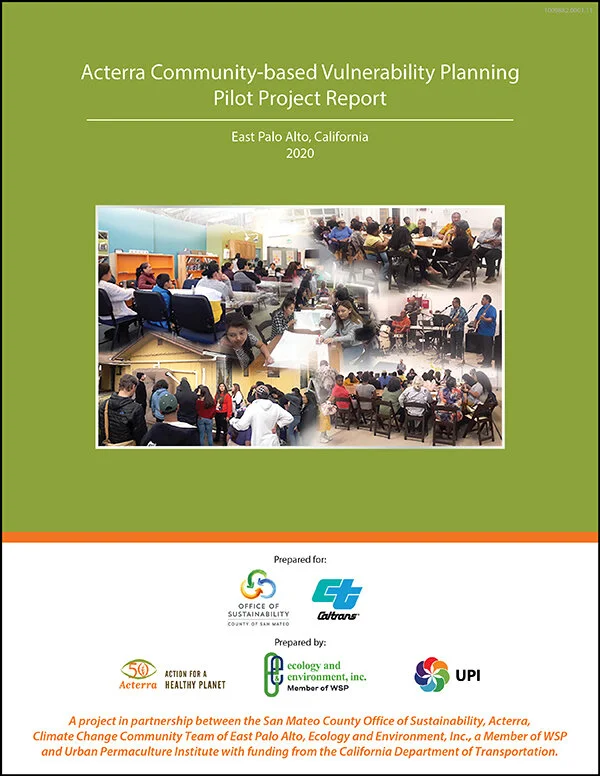
Resilient Adaptation
CRC’s Resilient Adaptation program focuses on creating tangible, action-oriented projects that address community priorities in response to climate change and sea level rise, ranging from contributions to city-wide adaptation and resilience planning to interventions for individual residents and families.
Climate Change Community Teams (CCCTs)
CRC’s Climate Change Community teams are the bedrock of our organization. These cross-sector, community groups, composed of residents, faith leaders, non-profit organizers, and youth representatives are formed to start climate resilience projects and programming at the neighborhood level. Currently CRC facilitates these groups in three communities: East Palo Alto, North Fair Oaks, and Belle Haven (Menlo Park). Learn more about our model in this video.
Current Projects
-
“Our Communities, Our Bay” is a research project with two goals: to know how communities are impacted by climate hazards, and find technologies and practices that best protect the health of families. Learn more.
-
Funded by the California Coastal Conservancy, CRC is installing 25 rain garden and water cistern systems for vulnerable homeowners in East Palo Alto. The systems, provided to residents at no cost, will promote food sovereignty, increase home values, curb water scarcity, and reduce the risk of flooding. Learn more.
-
For low-income communities and communities of color, wildfires mean dense smoke inside their homes, harming their families and compounding the consequences of chronic air pollution in their neighborhoods. CRC is raising funds to provide free air purifiers to 100 families in EPA, NFO, and Belle Haven. Learn more.
-
CRC is working with the City of Menlo Park on their new Environmental Justice Element and updated Safety Element for the General Plan. CRC is leading outreach through workshops, a survey, and language-specific focus groups to ensure representation across the entire City. Learn more.
-
The CRNFO CCCT has been working to plant trees in the neighborhood to combat extreme heat and poor air quality. Alongside CRNFO partner Canopy, CRC has conducted canvassing to plant trees in North Fair Oaks as part of a carbon sequestration initiative. In September 2020, Stanford Future Bay Initiative, CRNFO, and Canopy partnered to create a parcel-level analysis that would support Canopy’s efforts by illustrating tree-planting potential on a parcel-by-parcel basis. Learn more.
-
Alongside Grassroots Ecology, CRC was awarded a grant from the San Francisco Bay Restoration Authority’s Measure AA grant program to restore 2,400 linear feet of marshland along the Bay Trail at Ravenswood Preserve in East Palo Alto. Grassroots Ecology will lead the restoration effort and CRC will lead the community engagement and outreach, including hiring several interns from the local community to help with the work. Learn more.
-
CRC is performing community outreach to solicit resident input and priorities in the redesign of the Coleman and Ringwood streets near Menlo-Atherton. These streets serve many schools and it is important the community weighs in to create a proposal to redesign the street and fit their needs — including protected bike lanes, sidewalks, and public transit service. Learn more.
-
CRC is working with the San Francisquito Creek Joint Powers Authority to collect input on shoreline protection from sea level rise in East Palo Alto and Menlo Park. Currently, a Notice of Preparation has been submitted. Learn more.
-
Alongside project partner Fresh Approach, CRC is working to build community awareness around nature-based solutions for climate resilience and how climate change is contributing to negative health outcomes in the community. The project will create two retrofitted public spaces for residents to participate in workshops, access health- and climate-related resources, and find refuge on hot or smoky days. Learn more
Past Projects
-
In August 2019, with help from many local residents and community-based groups, the CCCT conducted a survey of households in East Palo Alto, focusing on residents’ attitudes about climate change and its impacts. CRC partnered with researchers at Stanford University to design and analyze the survey.
Read our final report. -
In 2020, CRC conducted a vulnerability assessment cataloging local climate impacts, striving to empower socially vulnerable communities in East Palo Alto to respond to climate change, sea-level rise, and other climate change-driven stressors following community-defined approaches. The process included convening three focus groups (Pacific Islander, youth, and Latinx) and installing an outdoor demonstration project to showcase a practical solution to flooding, water security, and food security.
Read the final report and learn more [LINK] -
In this project, Resilient By Design introduces new strategies to protect vulnerable communities from sea-level rise. South Bay Sponge is an adaptational design which rethinks planning and design infrastructure along the bay.
Watch the video. -
CRC partnered with Santa Clara County’s Public Health Department to conduct focus groups about air quality and extreme heat. We partnered with five organizations across the County: the Vietnamese Voluntary Organization (VIVO), Latinos United for a New America (LUNA), the International Childrens Assistance Network (ICAN), the Congregational Christian Church of American Samoa, and the Community Agency for Resources, Advocacy, and Services (CARAS). Across the board, the conversations centered on a need to start actionable projects to address needs for cooling centers, basic needs supplies, and educational materials.
Read the project report.

